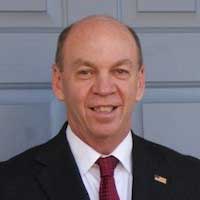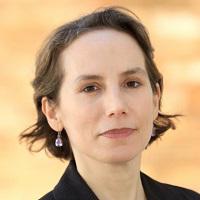
Matt Zbrog
Some of the most devastating crimes of the 21st century have not taken place in a dark alley, but rather in an air-conditioned office with a fountain pen. A conservative estimate puts the cost of white-collar crime at over $250 billion each year, while others suggest it is closer to $500 billion. The massive fraudulent schemes of white-collar crime ruin victims’ lives in a way sometimes referred to as economic homicide. For this reason, sentencing has risen accordingly with judges now handing out life sentences.
The term “white-collar crime” has been debated ever since it was first coined in 1939 by sociologist Edward Sutherland, who defined it as an illegal act committed by someone of high social status through the course of their occupation. A more recent definition by Herbert Edelhertz, however, classifies white-collar crime as a non-physical illegal act committed for financial benefit. While experts continue to debate which definition is best, most contemporary understandings take the Edelhertz approach, ignoring offender characteristics—such as perpetrators being of a high socioeconomic class—and focusing instead on how the crime is carried out.
The Federal Bureau of Investigation divides its white-collar crime operations into three major programs, each of which connects to wider crimes:
This is a broad mandate and one that has to be updated as methods and regulations evolve. Practically speaking, the term white-collar-crime can apply to every illegal act that is not street crime—but the high-profile cases are the ones with high-profile perpetrators.
A new generation became familiar of white-collar crime in 2009 when on the back of a financial crisis, Bernie Madoff pled guilty to committing the largest Ponzi scheme in history: a $65 billion fraud that affected more than 4,800 clients and resulted in multiple suicides.
On the surface, this epic swindle was simple. Madoff told investors he would place their money in traditional stocks, securities, and options that would achieve a high return. In reality, he took their money and deposited it in a bank account. When people wanted their money back, he withdrew cash to pay them. As long as he kept getting new clients and maintained some of the income streams from his old ones, there was always cash to draw upon, and no one was the wiser. This achingly simple plan went undiscovered for 30 years until the financial crisis caused more and more requests for payouts and the account was nearly drained.
While Madoff’s involvement mainly came down to, in his words, “one big lie,” his staff orchestrated the technical tasks, such as backdating trades to show gains that gave the operation the slightest appearance of legitimacy. Upon close inspection, these backdated trades were not expertly executed, occasionally listed as occurring on a weekend, federal holiday, or even dating to before the listed trade account had been opened.
Basic math revealed that to trade at the scale Madoff claimed, he would have had to buy more options than there were in existence. With all that sloppiness, Madoff himself readily claimed that he could have easily been caught in 2003 had investigators asked him the right questions.
So when Mr. Madoff eventually began serving his 150-year sentence, regulators and law enforcement were still left to assess how such a simple yet massive crime, and one that had been brought to their attention by a whistleblower almost a decade earlier, went on for so long.
“Madoff was successful because he was able to intimidate many of the auditors by his resume, reputation, and personality,” says Michael J. Clark, who spent 22 years as a special agent in the FBI investigating white-collar crime.
Whether operating from a compliance (private sector) position or an investigations and prevention (law enforcement) position, forensics professionals fight white-collar crime through an intricate knowledge of the financial system and its instruments, paired with a keen understanding of investigative methodology and criminal psychology. They catch overlooked red flags and ask the right questions when others would assume nothing is wrong.
“The most important skill is to be relentless,” Mr. Clark says. “You must drill down to interview all responsible parties—get out of the executive suite and into the trenches.”
As the global financial system and its supporting technology evolve, so must the skills of forensic professionals. White-collar crime is still a regular appearance in the headlines of American politics today, but some cases are beginning to sound more like dystopian science fiction. The classic strategy of “following the money” is getting harder to accomplish in a world where new financial instruments have been designed to obscure tracking and detection.
“The two biggest trends appear to be cyber-enabled financial crime on the criminal side, and machine learning on the compliance side,” says Dr. Moyara Ruehsen, who oversees the financial crime management program at Middlebury Institute of International Studies. For those working to fight white-collar crime, Dr. Ruehsen singles out curiosity and general knowledge about the world as the two most essential skills.
“Knowing or recognizing whether something is unusual or potentially criminal requires a breadth of knowledge about different cultures, naming conventions in different languages, geography, political and economic developments around the world, and an interest in continuous learning about new criminal groups and trends,” she says.
The modes and means of white-collar crime are more varied than ever before: digital currency, environmental crime, identity fraud, threat financing, and international corruption all change the nature of the game. Forensic professionals have to fight a battle on multiple fronts.
The perpetrators of white-collar crime can be an aide to a sitting U.S. president or an anonymous coder in a dorm room on the other side of the world. The victims are not just investors anymore, but citizens living in oppressed regimes sponsored with sanctions-busting cash, or people living in areas affected by environmental “green-collar” crime. The stakes have never been higher.
Those who think they are ready to fight that battle can check out some of the programs and experts below.
Utica’s fraud and financial crime investigation bachelor’s program was developed in collaboration with the school’s Economic Crime and Cybersecurity Unit, an institution that’s been at the leading edge of research into financial crime for more than 20 years.
Coursework for this 67- to 76-credit bachelor’s degree provides a comprehensive view of criminal justice as it relates to economic crime, across a wide range of disciplines. Specific classes cover payment systems and fraud, economic crime theory, forensic accounting, and information security. Students may add a concentration in either financial investigation or fraud prevention and detection.
The University of New Haven’s master of science in financial crimes investigation provides students with a specialized curriculum that blends research, instruction, and fieldwork.
The 30-credit curriculum covers white-collar crime analytics, criminal procedure, regulation and occupational fraud investigating financial crimes, and legal issues and investigation procedures in computer crime. A capstone research project aims to take what students have learned through the case-study methodology of the curriculum and have them apply it themselves to work in the field.
Please note that the school also offers a bachelor’s in criminal justice with a concentration in investigative services which includes a course on white-collar crime.
The financial crime management program can be taken as either a degree specialization or as a standalone certificate. It prepares students for work in private sector compliance and investigations, research and training with multilateral organizations, and anti-corruption compliance with NGOs. Graduates learn how to hunt down financial crime in public, private, and nonprofit contexts, prepare financial crime analysis reports, and identify and prevent white-collar crimes in the context of organized crime, corruption, terrorism, and WMD proliferation.
Core classes in the 16-credit program include money laundering and trade-based financial crimes, legal aspects of compliance, and financial crime investigation. Electives cover areas like forensic accounting, advanced data analysis, financial statement fraud detection, and cybersecurity governance. The program must be completed at the institute’s Monterey, California campus.

Michael Clark is a senior lecturer at the University of New Haven, where he teaches graduate courses in financial crime investigation, principles of criminal justice, and advanced investigation. He previously taught classes in financial crimes at the International Law Enforcement Academy in Budapest.
Mr. Clark served as a special agent in the FBI for 22 years, where he conducted investigations into white-collar crimes involving fraud, financial crimes, and public corruption. He is a member of the Association of Certified Fraud Examiners and the Academy of Criminal Justice Sciences, and recipient of the United States Attorney’s Award for Excellence. He holds a bachelor’s degree in English from Rowan University and a master’s in education from Seton Hall University.

Suzanne Lynch is a leading expert in white-collar crime and teaches at one of the best academic centers for the study of the subject. She is a professor of practice in economic crime at Utica College.
Before moving into academia, Ms. Lynch held high ranking fraud and risk management positions at institutions such as MasterCard, Goldman Sachs, and Comerica Bank, where she implemented fraud control procedures, led global fraud investigations, and developed third-party processing system risk controls. In addition to her work as a professor of practice at Utica. Lynch previously served as director of the school’s financial crime and compliance management program and assistant executive director of its Economic Crime Institute. She holds a bachelor’s degree in criminal justice and a master’s in economic crime management.

Dr. Moyara Ruehsen oversees the financial crime management program at the Middlebury Institute of International Studies, where she teaches classes in trade-based financial crime, proliferation financing, and financial investigation and compliance.
A frequent consultant to the U.S. government and private sector, her professional interests focus on money laundering, terrorist financing, corruption, financial cybercrime, proliferation financing, and sanctions compliance. She has written for academic journals and the mainstream press, and her subject matter expertise has seen her contracted for work in Iran, Iraq, Kuwait, Palestine, and the UAE. Dr. Ruehsen has served on the editorial advisory board of Money Laundering Alert and the Middle East Task Force of the Association of Certified Anti-Money Laundering Specialists. She has a bachelor’s in social science, a master’s in Middle East Studies, and a doctorate in international economics and Middle East studies—all from Johns Hopkins University.

Matt Zbrog
Matt Zbrog is a writer and researcher from Southern California. Since 2018, he’s written extensively about the increasing digitization of investigations, the growing importance of forensic science, and emerging areas of investigative practice like open source intelligence (OSINT) and blockchain forensics. His writing and research are focused on learning from those who know the subject best, including leaders and subject matter specialists from the Association of Certified Fraud Examiners (ACFE) and the American Academy of Forensic Science (AAFS). As part of the Big Employers in Forensics series, Matt has conducted detailed interviews with forensic experts at the ATF, DEA, FBI, and NCIS.